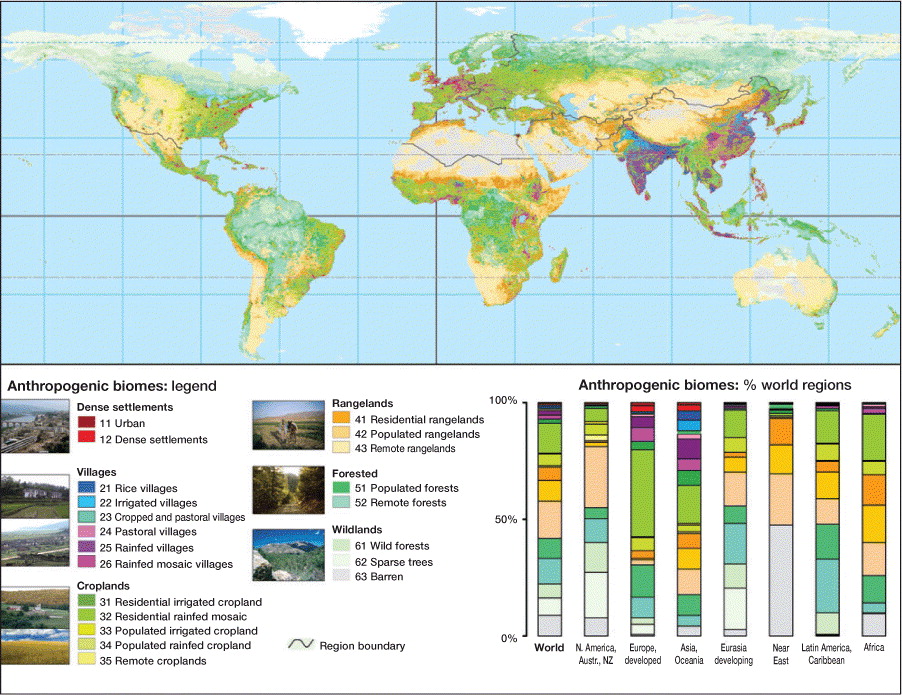Where the ecologists are: a Field Talk podcast with Erle Ellis
The UM-Baltimore County ecologist talks about geographical context in field research and why he thinks the value of nature is more than the sum of it’s services.
by Liza Lester, ESA communications officer
Listen to the podcast on the Field Talk page, or download it from iTunes.
Ellis collaborated with Laura Martin and Bernd Blossey of Cornell University on the Frontiers article featured in this podcast . Stay tuned to Ecotone for a longer post with insights from lead author Martin, coming up later this week.
Anthropogenic biomes (anthromes): a classification of land ecosystems based on prolonged and abiding communion with people, developed by Erle Ellis and Navin Ramankutty in their 2008 paper Putting people in the map: anthropogenic biomes of the world. Frontiers in Ecology and the Environment 6:8, 439-447. Map from Figure 1 of the paper. Scale = 1:160 000 000, Plate Carrée projection (geographic), 5 arc minute resolution (5′ = 0.0833°). [click image to enlarge]
_________________
GEOGRAPHICAL bias in field research matters because we’re facing global change – “these are global phenomena, so we need global information,” said Erle Ellis, a professor of geography & environmental systems at the University of Maryland, Baltimore County, talking about the low resolution of ecological data from many parts of the world. A review of five years of ecological field studies, published earlier this year, showed a bias toward the protected, temperate, broad-leafed forests of wealthy countries, where most ecologists make their homes. Ellis talks about some of the surprising discoveries of the review, and the challenges of defining native species ranges in a time of global change. He shares concerns about framing conservation in terms of ecosystems services, and his own journey from plant physiology through agricultural field studies in rural China, to his current work in land use and global change.
_________________
Mapping where ecologists work: biases in the global distribution of terrestrial ecological observations. Laura J Martin, Bernd Blossey, and Erle Ellis. Frontiers in Ecology and the Environment 2012 10:4, 195-201.
